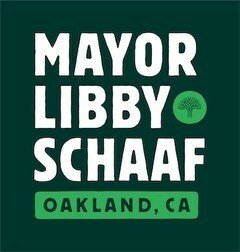CA Selects Oakland for Historic Investment to Close the Digital Divide
CITY OF OAKLAND PRESS RELEASE
Media Contact: Justin Berton
Communications Director
jberton@oaklandca.gov
Oakland, California — As a critical step to close the digital divide, Gov. Gavin Newsom and the California Department of Technology announced that four state highways in Oakland will be included in the first round of statewide broadband fiber infrastructure investments.
Segments of Interstate 880, State Route 185 (International Boulevard), I-980, and I-580 will all be sites of investment in “middle-mile fiber,” the key to unlocking equitable access to high-speed broadband in many of Oakland’s most under-connected neighborhoods.
The state’s Middle-Mile Advisory Committee, tasked with implementing $3.25 billion in funding from SB 156 to provide broadband access to 98% of California households, identified 18 specific areas across the state of California, with Oakland being one of only three urban areas prioritized in the first round of implementation.
“This announcement is a critical step to ensuring all Oakland residents have access to what has become a 21st century necessity, high-speed broadband internet in their home” Oakland Mayor Libby Schaaf said. “I truly appreciate that the State of California listened to the advocacy of our community and prioritized Oakland’s most underserved neighborhoods, which have been under-connected and passed over for too long. We hope Oakland can be a proof point for other California cities, demonstrating the critical need and opportunity for investment in urban areas.”
Amy Tong, Chair of the committee and Director of the California Department of Technology, on why Oakland was prioritized in round 1 said, “Oakland has taken steps to ensure that this investment is utilized to its fullest potential, including building a broad coalition of partners, creating innovative last-mile pilots, and prioritizing digital inclusion work at a community-level. We’re excited about Oakland being a model to learn from and inform projects in cities across the state to meet the goals of SB 156 and bridge the digital divide.”
This announcement comes after the deliberate advocacy of the #OaklandUndivided Coalition made up of elected officials and community-based organizations listed further below.
The group, which contributed formal comments during the California Public Utility Commission’s proceedings, pushed the state to incorporate input from under-connected urban communities such as West and East Oakland that without the coalition’s recommendation, would have potentially been left out of the state’s investments.
Among those who advocated for equity-based criteria in selecting priority areas was Oakland NAACP President George Holland.
“I commend the state for using a transparent process and listening to the needs of our community,” Holland said. “It was important for us to partner with #OaklandUndivided and advocate to ensure that Black and other residents of color weren’t again left out. There are historic, once-in-a-generation broadband investments being made at the state and federal level and it’s critical that our community, which reflects some of the most under-connected across the state, is prioritized.”
#OaklandUndivided is a collective impact, equity-focused initiative founded by the City of Oakland, Oakland Unified School District, Tech Exchange, the Oakland Public Education, and Oakland Promise. Working together with over 15 leadership partners (all listed at www.oaklandundivided.org), the initiative distributed more than 29,000 laptops and 10,000 hotspots and Tech Exchange, who has been working to close the digital divide in Oakland for over 25 years, fulfilled over 10,000 tech support requests in the 20-21 school year. This resulted in an increase in home access to a computer and internet for Oakland public school students from low-income backgrounds from 12% to 98%.
“I’m proud of the impact we have made together” said OUSD Superintendent Kyla Johnson-Trammell. “This announcement will help us to sustain and expand connectivity for our students and families for generations to come.”
This announcement builds on both the direct impact #OaklandUndivided had over the past year and the recent selection of Oakland as the inaugural city in EducationSuperHighway’s national campaign to close the digital divide for those who have access to the internet but can’t afford it.
Evan Marwell, CEO of the national nonprofit that selected Oakland as its first pilot city said “Innovative last-mile solutions, like free apartment Wi-Fi, rely on 21st-century fiber infrastructure to deliver fast and reliable Internet connections. This investment by the California Department of Technology will catalyze our efforts to improve connectivity and adoption among the city's least connected residents and is a further example of broad public-private partnerships needed to close our nation's digital divide."
The partnership with EducationSuperHighway, which will be aided by today’s announcement, has the goal of connecting 90% of Oakland’s unconnected residents within the next 5 years. Achieving this ambitious target requires both urgent action - interconnecting existing fiber infrastructure to address immediate needs - and lasting investments that ensure high speed access for years to come.
The state investment will also enable another innovative last-mile pilot - Oakland’s community-owned LTE network designed by BlocPower. “Access to fiber empowers communities to develop solutions that meet their unique needs,” explained BlocPower’s Chief Revenue Officer Glenn Schatz. “The state sees in Oakland what we see - a community united to close the digital divide.”
“This is a truly historic announcement for Oakland’s most underserved communities” said the City’s Chief Information Officer Kevin Fong. “Every high-tech solution that will connect residents and empower Oakland’s local business community for the foreseeable future relies on a robust and redundant fiber backbone, which is exactly what this investment provides. We’re excited that the Department of Technology is responding to the needs of our community to correct a systemic inequity.”
--
The #OaklandUndivided Coalition formally recognized in the CPUC’s proceedings: Mayor Libby Schaaf, Councilmembers Noel Gallo, Loren Taylor, and Treva Reid, Alameda County Supervisor Nate Miley, School Board Directors Dr. Gary Yee and Dr. Cliff Thompson, Unity Council CEO Chris Iglesias and Chief of Staff Karely Ordaz, Latino Education Network leader Jorge Lerma, Oakland NAACP President George Holland, Oakland Promise Senior Manager Dulce Torres-Petty, BlocPower CEO Donnel Baird, Oakland Housing Authority Executive Director Patricia Wells, Homies Empowerment Co-Founder Dr. Cesar Cruz, The Oakland REACH Chief Program Officer Michael De Sousa, Tech Exchange Executive Director Seth Hubbert, Black Joy Parade CEO Elisha Greenwell, Nehanda Imara of the Black Cultural Zone, OUSD CTO Susan Beltz, and Kapor Center CTO Lili Gangas. #OaklandUndivided Coalition was joined by The Greenlining Institute and Vinhcent Le in the formal joint comment submitted the Public Utilities Commission.

